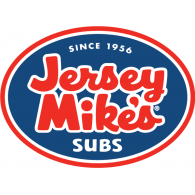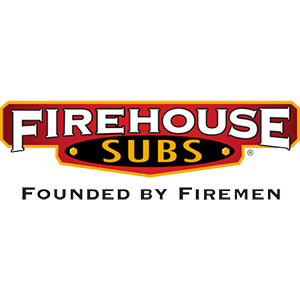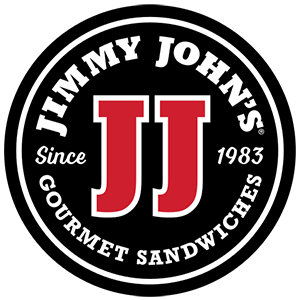Jersey Mike’s Franchise in 2024: Costs, Fee & FDD
Explore the costs, growth potential, and success rates of Jersey Mike’s franchise—one of the fastest-growing and most successful sandwich chains in the U.S. Is Jersey Mike’s the right investment for you? Dive into our detailed analysis to find out!
Table of Contents:
Jersey Mike’s is a popular sandwich franchise that started in 1956 in Point Pleasant, New Jersey. Founded by Peter Cancro, who bought the original Mike’s Subs at the age of 17, Jersey Mike’s has grown from a local favorite to a nationwide sensation. Cancro’s story is particularly inspiring because he started as an employee and later turned the business into a franchise model that has resonated with sandwich lovers across the U.S. The brand’s commitment to quality and customer service has made it a significant player in the fast-casual dining sector.
At the heart of Jersey Mike’s is its authentic, freshly made subs. The menu focuses on cold and hot subs, using premium meats and cheeses sliced fresh in front of customers. Their bread is baked daily, and they offer a unique “Mike’s Way” dressing with onions, lettuce, tomatoes, and a special blend of red wine vinegar and olive oil. While the core offerings are subs, they also provide catering services, making them a go-to option for both individual meals and larger gatherings. The typical Jersey Mike’s customer is someone who appreciates quality, fresh ingredients, and the experience of seeing their sandwich made to order.
As of now, Jersey Mike’s has over 2,000 locations across the United States, with a few international spots, including in Australia. The brand’s growth has been impressive, thanks to its strong customer base and commitment to community involvement. They serve millions of customers every year, with a focus on lunch and dinner crowds. The franchise is known for its strong presence in suburban areas, malls, and college towns, making it a staple in many communities.
Jersey Mike’s offers a robust support system for its franchisees. This includes comprehensive training programs covering everything from daily operations to marketing and customer service. New franchisees undergo several weeks of training, both in the classroom and on-site, to ensure they are well-prepared to run their location. Additionally, the franchise provides ongoing support with marketing materials, supply chain management, and operational advice. Franchisees also benefit from the brand’s established reputation and a dedicated customer base, which can help new locations get off the ground quickly.
Jersey Mike’s Franchise Insights
- Jersey Mike’s impressive year-over-year growth rate of 13%, compared to the industry average of just 1%, highlights its strong market demand and successful business model.
- With a 3-year failure rate of only 2%, far below the industry average of 11%, it demonstrates a reliable franchise opportunity with a solid track record of success.
- Jersey Mike’s has over 2,000 locations, and its commitment to quality and community involvement has helped it become one of the fastest-growing franchises in the fast-casual sector.
Jersey Mike’s Franchise Key indicators
Growth YOY (%)
13%
vs industry 1%
Total U.S. Franchised Units
2,647
3-Year Failure Rate
2%
vs industry 11%
Sales-to-Investment ratio
1.7:1
How much does it cost to open a Jersey Mike’s franchise?
Understanding the potential investment size and capital requirements is crucial when considering opening a Jersey Mike’s franchise. These financial commitments, including initial franchise fees, equipment costs, and ongoing operational expenses, impact the feasibility and profitability of the venture. Thoroughly evaluating these factors ensures that potential franchisees are prepared for the financial responsibilities and can make informed decisions about their ability to sustain and grow the business, ultimately contributing to long-term success.
Min & Max Investment
Opening a Jersey Mike’s franchise involves several key costs, which are outlined in Item 7 of the Franchise Disclosure Document (FDD). You can see a breakdown of the costs to open a Jersey Mike’s below from the most recent Item 7 below:
| Type of Expenditure | Minimum Investment | Maximum Investment |
|---|---|---|
| Initial Franchise Fee | $18,500 | $18,500 |
| Real Estate and Construction Fee | $5,000 | $5,000 |
| Rent/Lease CAM/Taxes/Lease and Utility Security Deposits | $0 | $57,069 |
| Architectural Fees | $2,125 | $25,979 |
| Leasehold Improvements | $101,200 | $586,363 |
| Equipment/Furniture/Small Wares | $27,991 | $243,152 |
| Initial Inventory | $2,698 | $37,850 |
| Insurance | $1,000 | $9,800 |
| Training | $1,000 | $68,000 |
| Grand Opening Advertising | $12,500 | $12,500 |
| Exterior Signage | $2,145 | $52,978 |
| Interior Branding /Graphics | $1,610 | $14,470 |
| Uniforms, Office Equipment and Supplies, TVs/Stereo System/Security System | $1,000 | $70,639 |
| POS System | $5,064 | $29,598 |
| POS System Connection to Private Network | $4,000 | $4,000 |
| POS License Fee | $2,000 | $4,000 |
| Professional fees (lawyer, accountant, etc.) | $250 | $34,107 |
| Business Licenses and Permits | $500 | $28,000 |
| Additional Funds for 3 months | $15,000 | $15,000 |
| Total | $203,583 | $1,317,005 |
Item 7 in the Franchise Disclosure Document (FDD) is the “Estimated Initial Investment” section. It outlines the total costs a franchisee can expect to incur when starting a franchise, including the initial franchise fee, equipment, inventory, real estate, and other startup expenses. This section is crucial because it provides potential franchisees with a detailed understanding of the financial commitment required, helping them assess affordability and plan their investment strategy effectively.
Required Capital
To open a Jersey Mike’s franchise, the required capital involves both the initial investment costs and financial requirements set by the company. Let’s take a closer look below:
- Initial Investment The total estimated initial investment for a Jersey Mike’s franchise typically ranges from $204,000 to $1.32 million. This includes the franchise fee, real estate, construction, equipment, initial inventory, and additional funds for initial operating expenses. Assuming that you will finance your franchise investment, you should plan to have 20% of the total investment amount in the form of equity (cash) for the investment.
- Liquid Assets Requirement Jersey Mike’s requires franchisees to have a minimum of $100,000 in liquid assets. This ensures the franchisee has sufficient funds to cover unforeseen expenses and maintain financial stability during the startup phase.
- Net Worth Requirement While the specific net worth requirement may vary, Jersey Mike’s generally expects franchisees to have a net worth of at least $300,000. This includes the value of assets like real estate, investments, and personal property, minus any liabilities.
How much does a Jersey Mike’s franchise owner make?
Calculating the salary of a Jersey Mike’s franchise owner involves analyzing gross sales to determine total revenue, assessing operational efficiency to understand profit margins, and accounting for franchisor fees and additional expenses such as rent, utilities, and payroll. Effective management of these factors can significantly impact the profitability and financial success of a Jersey Mike’s franchise owner. This comprehensive financial analysis helps estimate net profits, from which the owner’s salary can be derived. A clear understanding of these factors ensures accurate salary projections and financial planning for sustainable business operations.
Jersey Mike’s Revenue & Gross Sales
Jersey Mike’s franchises have a median gross sales of $1,272,804. This revenue performance highlights the brand’s continued strong market presence and the promising financial potential for its franchisees.
Which key factors impact the average revenue performance of Jersey Mike’s franchisees?
The growth in Jersey Mike’s U.S. franchisee median gross sales revenue performance can likely be attributed to several factors. First, the brand’s continued emphasis on high-quality ingredients and the personalized service experience has fostered strong customer loyalty, driving repeat business. Additionally, Jersey Mike’s strategic expansion into new markets and increased focus on digital and mobile ordering have likely contributed to higher sales volumes. The franchise’s active community engagement and charity initiatives, such as the annual “Day of Giving,” have also strengthened its reputation, attracting more customers. Finally, the brand’s ability to adapt to changing consumer preferences, including offering healthier menu options, has likely played a role in sustaining growth during this period.
Jersey Mike’s Franchise Operational Costs
When opening a Jersey Mike’s franchise, you should consider several key ongoing operational costs that are crucial for maintaining the business:
- Rent or Lease Payments Depending on the location, this can be a significant portion of your monthly expenses.
- Employee Wages and Benefits Labor costs are ongoing, including salaries, wages, benefits, and payroll taxes for your staff.
- Inventory Costs Regular purchases of fresh ingredients and supplies are necessary to keep up with demand and maintain product quality.
- Utilities and Maintenance Costs for electricity, water, gas, and regular maintenance of equipment and the facility are essential to keep the business running smoothly.
- Insurance Regular insurance premiums, including property, liability, and workers’ compensation insurance, are necessary to protect your business.
- Technology and Point of Sale Systems Maintenance and updates for your POS systems and other technology platforms to ensure efficient operations.
Understanding and managing these costs effectively is key to the long-term success of your franchise.
Jersey Mike’s Franchise Fees
When considering opening a Jersey Mike’s franchise, it’s essential to be aware of the ongoing fees associated with operating the business. Here’s a breakdown of the key costs:
- Continuing Royalty Fees 6.5% of Gross Receipts for a standard franchise agreement. These fees are payable weekly via wire transfer. They are calculated based on the franchise’s gross receipts and are crucial for maintaining your franchise’s affiliation with Jersey Mike’s brand.
- Grand Opening Advertising $12,500 for a new franchise and $5,000 for transfers or relocations. This fee is due when you sign the lease and must be spent during the first month of operation to ensure a strong launch.
- Real Estate and Construction Fee $5,000 due when you sign the lease. This fee covers the company’s assistance with the real estate and construction processes, helping you set up your location efficiently.
- Corporate Advertising and Development Fund Currently 1.0% of Gross Receipts, payable at the same time and in the same manner as Continuing Royalty Fees. This fee supports Jersey Mike’s corporate advertising initiatives, but note that the total contribution to various advertising funds will not exceed 6% of your gross receipts.
- Additional Fees Be aware that there might be additional fees required for things like technology support, equipment maintenance, and training programs. These can vary based on your specific location and operational needs.
Understanding these costs is crucial for managing your finances effectively and ensuring the long-term success of your franchise.
Jersey Mike’s Franchise Earnings
Most recent data shows the median gross sales for a Jersey Mike’s franchise are $1,272,804, showcasing the franchise’s ability to generate strong revenue. For an owner-operator, the estimated earnings are approximately $190,921, which reflects a solid operating margin considering the operational demands. This figure suggests that a hands-on approach to managing the franchise can be quite profitable, allowing the franchisee to benefit directly from the business’s financial success.
While semi-absentee owners may have slightly lower earnings than owner-operators, these earnings still represent a healthy income, particularly for those looking to balance multiple business ventures or other responsibilities. This indicates that both management approaches can yield substantial returns, making Jersey Mike’s a flexible and potentially lucrative investment.
How to Open a Jersey Mike’ Franchise
Becoming a Jersey Mike’s franchisee involves several key steps that guide you from the initial inquiry to the opening of your franchise location. Here’s an overview of the process:
- Initial Inquiry You or your franchise specialist submits an initial inquiry basic information about your interest and background. You should also conduct thorough research on the franchise, including seeing all of the information available on the Vetted Biz franchise intelligence platform, including access to the most recent Franchise Disclosure Document (FDD).
- Franchise Application Once your initial inquiry is reviewed, you’ll be asked to complete a formal franchise application. This includes detailed financial information to assess your qualifications.
- Discovery Process If your application is approved, you’ll enter the discovery phase. This includes reviewing the Franchise Disclosure Document (FDD), which provides comprehensive details about the franchise, and participating in a discovery day to meet the corporate team and learn more about the business.
- Approval and Agreement After completing the discovery process, if both parties are satisfied, you’ll receive formal approval to become a franchisee. You’ll then sign the franchise agreement and pay the initial franchise fee.
- Site Selection and Lease Signing With corporate assistance, you’ll begin the process of selecting a suitable location for your franchise. Jersey Mike’s offers guidance on site selection, and once a location is chosen, you’ll sign the lease agreement.
- Training Program Before your store opens, you’ll undergo several weeks of training at Jersey Mike’s headquarters and at an existing store. This training covers everything from operations and customer service to marketing and financial management.
- Store Construction and Setup During training, your location will be under construction or renovation. Jersey Mike’s provides support with construction, design, and setup to ensure your store meets brand standards.
- Grand Opening and Operations Once construction is complete and your training is finished, you’ll conduct a grand opening event, which is crucial for building initial customer interest. Afterward, you’ll begin daily operations, with ongoing support from the corporate team to help you manage and grow your business.
Pros & Cons
Pros
Strong Brand Recognition: Jersey Mike’s is a well-known and respected brand with a loyal customer base, which can lead to steady sales and a quicker return on investment.
Proven Business Model: With decades of successful operations, Jersey Mike’s offers a tried-and-tested business model that reduces the risk for new franchisees.
Comprehensive Training and Support: The franchise provides extensive training and ongoing support, covering everything from daily operations to marketing, which can be especially beneficial for first-time business owners.
Quality Product Offering: Jersey Mike’s is known for its high-quality, fresh ingredients, which attracts health-conscious consumers and adds to the brand’s reputation.
Growth Potential: The franchise has been experiencing steady growth in sales and earnings, indicating strong market demand and the potential for profitable returns.
Cons
High Initial Investment: The startup costs, including franchise fees, real estate, and equipment, can be relatively high, which may require substantial capital upfront.
Ongoing Royalty and Advertising Fees: Franchisees are required to pay ongoing royalty fees (6.5% of gross receipts) and contributions to advertising funds, which can impact profit margins.
Competitive Market: The quick-service sandwich market is highly competitive, with many established brands, which could make it challenging to stand out in certain areas.
Operational Demands: Running a Jersey Mike’s franchise can be demanding, requiring hands-on management, particularly in the early stages, to ensure the business runs smoothly and meets brand standards.
Limited Flexibility: As with most franchises, there is limited flexibility in terms of menu offerings and store operations, as franchisees must adhere to the company’s guidelines and standards.




